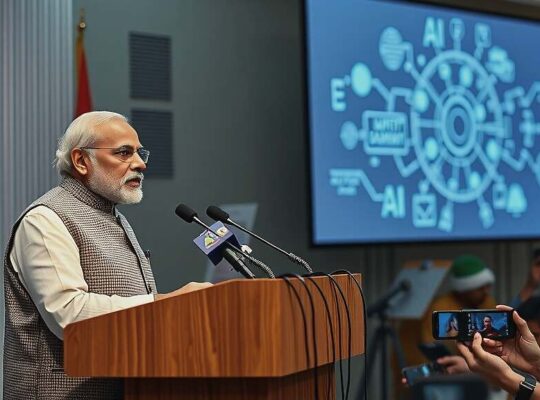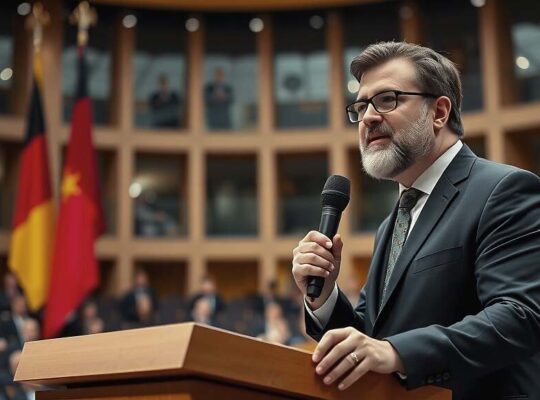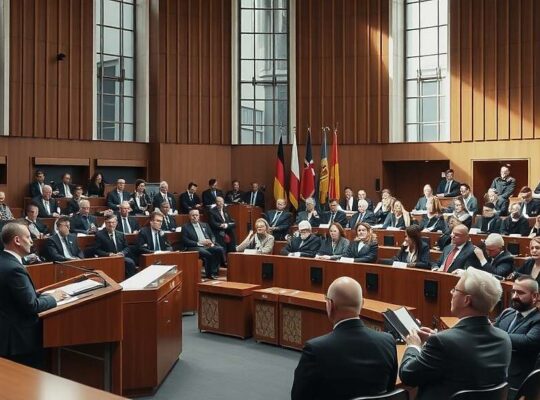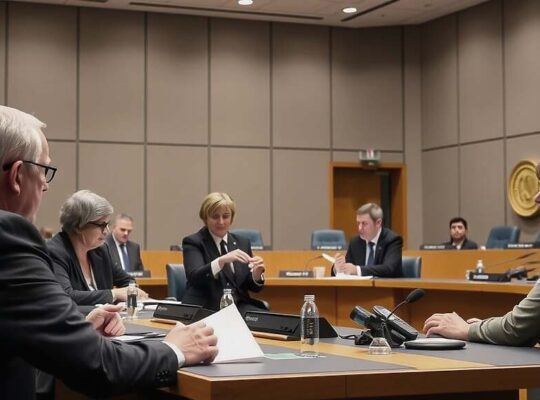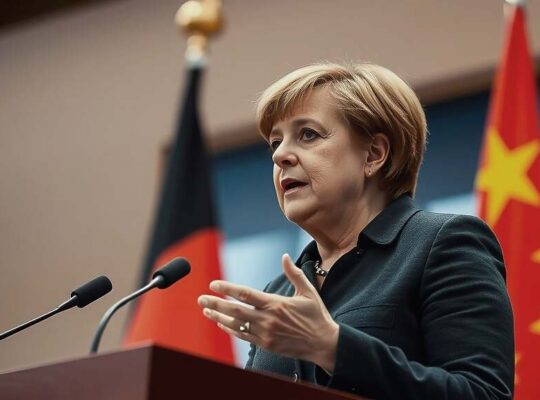The German Green Party is escalating its calls for a “digital tax” targeting companies generating substantial profits with minimal employment through the deployment of artificial intelligence, a move framed as vital for both economic fairness and national technological sovereignty. Felix Banaszak, the party’s leader, voiced his concerns in an interview with the “Rheinische Post” emphasizing that the initiative currently lacks crucial backing from Chancellor Olaf Scholz and remains largely championed by Culture Minister Wolfram Weimar.
Banaszak’s proposal isn’t solely about revenue generation. It’s positioned as a strategic element in fostering European innovation and lessening dependence on foreign technology giants. The Green Party leader argued that a strong regulatory framework surrounding social media platforms is also indispensable in combating the spread of extremism and misinformation online, particularly emphasizing the perceived advantage the Alternative for Germany (AfD) gains from the distortion of political discourse within these spaces.
“The AfD benefits from the way social media platforms warp political conversations” Banaszak stated, advocating for stronger regulation and taxation of these platforms deemed a “polarization machine” undermining democratic debate. The call for increased scrutiny echoes growing anxieties about the influence of these platforms and their role in increasingly fractured political landscapes.
Beyond the digital tax, the Greens are adopting a dual strategy – a combination of optimism and direct criticism – in their efforts to counter the AfD’s growing influence. Banaszak criticized the government’s tendency to prioritize short-term political gains, exemplified by what he characterized as wasteful spending on coalitions rather than strategic investments in the future. He pointed to the success of the Democratic Party’s campaign in New York as a model, underscoring the need for both a hopeful vision and a willingness to directly challenge the opposition’s tactics. This approach aims to appeal to voters disillusioned by both established parties and anxieties surrounding the direction of the country. The Green Party’s upcoming convention in Hannover will be pivotal in further defining this offensive and defensive strategy, balancing appealing to voters yearning for a positive future with a willingness to aggressively challenge the political status quo.



